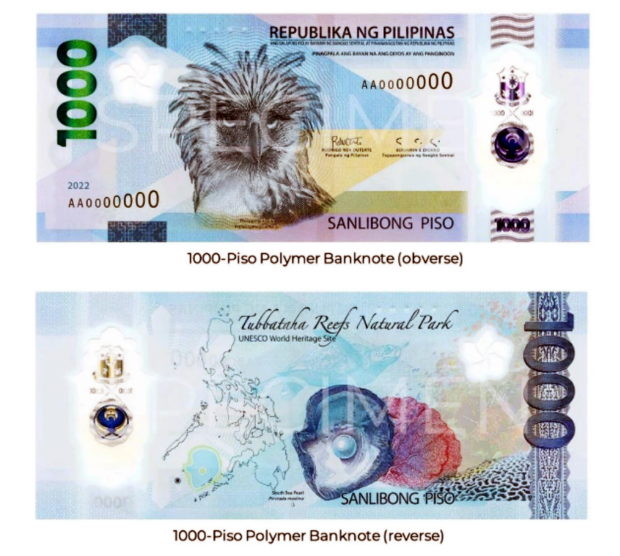Pimentel to BSP: Suspend production of ‘impractical’ P1,000 polymer bills
MANILA, Philippines — Opposition Senator Aquilino “Koko” Pimentel III has asked the Bangko Sentral ng Pilipinas (BSP) to immediately suspend the production of “impractical” P1,000 polymer bills.
He said the BSP’s decision to use polymer instead of the indigenous abaca (also known as Manila hemp) in its new P1,000 bills is not only detrimental to the livelihood of local abaca producers but is also very impractical to many Filipinos who are used to storing their bills in their pockets, purses, or their tri-fold wallets.
“The issuance of these polymer bills to replace our old banknotes is absolutely absurd. Our bills should be designed in such a way that they can withstand a minimum amount of abuse like crumpling and folding. Parang gusto pa yata nila ilagay sa frame yung bills para kunwari matibay,” Pimentel said in a statement on Tuesday night.
“The BSP should suspend the production of these banknotes ASAP,” he added.
While polymers are supposed to be sturdier than abaca, Pimentel said it does not have the needed flexibility to allow people to store it in their pockets, purses, money clips or even small wallets.
Polymers are also very sensitive to chemicals, he added.
The legislator also said he is concerned about the possible negative impact of replacing abaca as a material for producing P1,000 bills, especially to the country’s income from the exports of abaca fiber and manufactures, amounting to US $97.1 million per year.
Citing the Department of Agriculture, Pimentel said the Philippines dominates the global abaca trade as the country supplies about 87.5 percent of the world’s abaca fiber requirements, while Ecuador and Costa Rica the remaining 12.5 percent as of 2016.
In 2016, abaca was planted on 180,302 hectares (ha) with production reaching 72,000 metric tons (MT).
Design change issues
Pimentel also questioned BSP’s “rather arbitrary and hasty changes in our monetary design for the purpose of crafting legislation on this matter.”
He said he filed a resolution urging the Senate to conduct a Senate inquiry on the BSP’s inclination to constantly change banknotes and coins at the expense of Filipino taxpayers.
In his resolution, he said there is a need to find out who are the other agencies involved and consulted for the country’s monetary design; how much does the government spend when changing; the problems BSP encountered when the new design series was demonetized and whether there were complaints from the public.
Pimentel also said senators should also ask about the reasons of the BSP for changing the current P1,000 banknote and whether or not the new P1,000 polymer note is truly a “limited series.”
